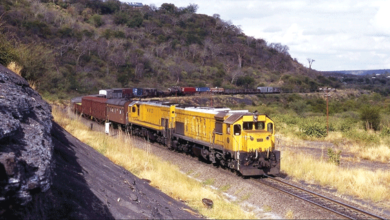Millers warn of looming price increases

By Lulu Brenda Harris
Consumers must brace themselves for yet another increase in the price of mealie meal and flour-related products with millers saying the cost of imported wheat, packaging and transport have significantly gone up.
The removal of wheat subsidy hit grain millers hard and this has been worsened by the exchange rate movements, which have been skyrocketing since last week and have negatively impacted the viability of the grain milling industry.
Millers are unable to access foreign currency from the Interbank market and resort to the parallel market to buy US dollars in order to import wheat from suppliers.
At the official interbank market rate, which is around US$1:4RTGS$ wheat comes at a cost of RTGS$1.912.90 per metric tonne which is a 284 percent increase from the Grain Marketing Board (GMB) price of RTGS$675.00 per metric tonne.
But stocks at the GMB have been depleted, meaning grain millers have to import wheat and access foreign currency at a higher rate from the parallel market.
In a statement, Grain Millers Association of Zimbabwe (GMAZ), General Manager Lynette Veremu said although the elimination of the concessionary RTGS$ 1:1 rate with the US$ by the Reserve Bank of Zimbabwe was a welcome development in removing market distortions it had pushed the costs of imported wheat significantly high.
“The depletion of local wheat stocks at the (GMB) priced at RTGS$675 per metric tonne entails that the country has to fully rely on imported wheat until local harvest in November.
The price of imported wheat is DDU (Delivered Duty Unpaid) is US$407 per metric tonne. Computed at the interbank rate of circa 1:4.7 wheat costs to the miller is now RTGS$1.912.90 per metric tonne which is a 284 percent increase from GMB price at RTGS$675.00,” she said.
To worsen the situation, GMAZ said packaging manufacturers, which includes the government-owned Tregers are now demanding payment in foreign currency.
“It is difficult, if not impossible for millers to obtain the foreign currency on interbank for such a local transaction and consequently millers are now resorting to parallel market which has a premium rate currently at 1:8. This has seen packaging costs surging significantly,” said the GMAZ boss.
She added that the fuel prices changes have seen transport costs increasing from RTGS$80 per metric tonne to RTGS$215.00 per metric tonne with transporters citing other variable costs as well.
“We appeal to the authorities that in future, an impact assessment on basic commodities prices is done before any policy pronouncements so that business is not blamed for the price increase and also avoid the need to negotiate prices of these basic commodities post facto,” Veremu said.
The general manager noted that in view of the foregoing, the milling industry is yet to adjust its prices as discussions with the Minister of Industry and Commerce are being concluded.
“New prices, indicating the maximum recommended retail prices, will be published in all major newspapers nationwide shortly. Our monitoring teams will be in the field to promote adherence,” she said.





